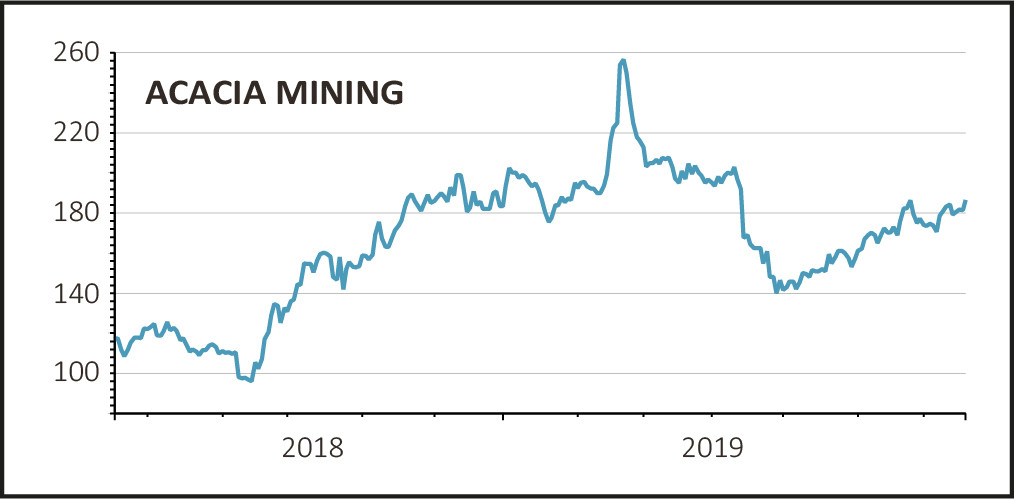
The ongoing takeover saga between gold producers Acacia Mining (ACA) and majority shareholder Barrick Gold is drawing to a close after the latter agreed a deal to buy out Acacia’s minorities for £343m.
Shares in Acacia soared 19% to 222p as Barrick, the world’s second biggest gold miner, struck a deal to buy the 36% of Acacia it doesn’t already own in a deal that values the overall business at £951m.
Despite the jump, the shares are still trading below Barrick’s offer price of 232p per share, which suggests the market thinks that the deal may not be cut and dried.
The offer represents a 28% premium on Acacia’s shares compared to yesterday’s closing price of 187p.
READ MORE ABOUT ACACIA MINING HERE
Acacia’s chief executive Peter Geleta said this morning that ‘given all the circumstances’, the takeover deal is ‘possibly the best outcome.’
The deal now allows Barrick to negotiate with the Tanzanian government over Acacia’s long-running dispute in the country, where it runs three gold mines, and Geleta added that he hopes a ‘new partnership’ can be set up with the Tanzanian government.
Acacia rebuffed a previous offer of 146p per share from Barrick in May, which valued the business at the time at £621m, and told shareholders to ‘take no action’ over the offer as it undervalued the business.
Barrick chief executive Mark Bristow has previously criticised others in the mining industry for offering large premiums in company takeovers.
Its previous low-ball offer for Acacia came in response to the Tanzanian government's refusal to settle directly over a long-running tax row with the FTSE 250 miner, which has had a damaging effect on both Acacia’s operations in Tanzania and its overall business.
The firm has done well to get Barrick to up its offer, according to AJ Bell investment director Russ Mould, who said Barrick was in a ‘strong bargaining position’ given it already owns almost two thirds of the business.
Mould added, ‘Investors may be relieved too given the difficulties Acacia has encountered of late with the authorities in Tanzania, problems which it is hoped this transaction will go some way to solving.’




